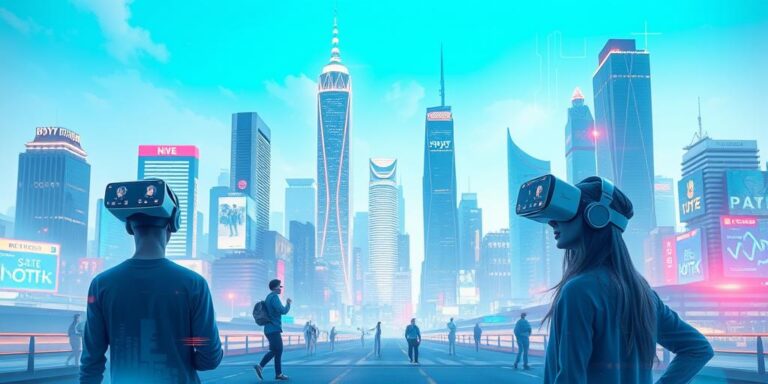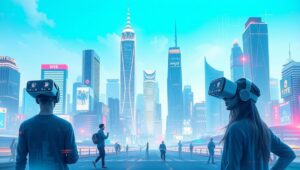The Social Implications of Widespread AR/VR Use (2027)
By 2027, Augmented Reality (AR) and Virtual Reality (VR) technologies have moved beyond niche applications and become integral parts of daily life. This widespread adoption brings about profound social implications that warrant careful examination.
Changes in Social Interaction
- Enhanced Communication: AR overlays real-time information onto our surroundings, facilitating richer, more contextual communication. VR offers immersive environments for remote collaboration and social gatherings, blurring geographical boundaries.
- Digital Divides: Unequal access to AR/VR technology exacerbates existing social inequalities. Affluent communities benefit from advanced applications in education, healthcare, and entertainment, while marginalized groups may be left behind.
- Shifting Social Norms: Increased reliance on virtual interactions reshapes social norms. Face-to-face communication skills may atrophy, and individuals may struggle to navigate real-world social situations.
Impact on Education and Work
- Immersive Learning: VR provides immersive learning experiences that enhance knowledge retention and skill development. Students can explore historical sites, dissect virtual organisms, and practice complex procedures in a safe, controlled environment.
- Remote Work Revolution: AR/VR technologies facilitate remote collaboration and virtual workspaces. Employees can interact with colleagues, attend meetings, and access resources from anywhere in the world, reducing the need for physical offices.
- Skills Gap: The widespread adoption of AR/VR creates a demand for new skills in areas such as content creation, software development, and hardware maintenance. Educational institutions and training programs must adapt to prepare the workforce for these emerging opportunities.
Ethical and Societal Challenges
- Privacy Concerns: AR/VR devices collect vast amounts of personal data, raising concerns about privacy and surveillance. Robust regulations and ethical guidelines are needed to protect individuals from data breaches and misuse.
- Mental Health Effects: Excessive immersion in virtual worlds may lead to social isolation, anxiety, and depression. It is crucial to promote responsible usage and provide mental health support for individuals struggling with AR/VR addiction.
- Misinformation and Manipulation: AR/VR technologies can be used to create realistic simulations and manipulate people’s perceptions of reality. Safeguards are needed to prevent the spread of misinformation and protect individuals from manipulation attempts.
The Path Forward
As AR/VR technology continues to evolve, it is essential to address the social implications and ethical challenges proactively. By fostering equitable access, promoting responsible usage, and establishing robust regulatory frameworks, we can harness the transformative potential of AR/VR while mitigating its risks.




